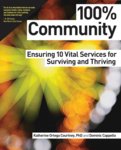Wind: mph,
Welcome to our new web site!
To give our readers a chance to experience all that our new website has to offer, we have made all content freely avaiable, through October 1, 2018.
During this time, print and digital subscribers will not need to log in to view our stories or e-editions.



U.S. Senators Tom Udall and Martin Heinrich, both D-N.M., have joined a bipartisan group of 39 senators in a letter calling on Senate leadership to include strong support for victims and survivors of domestic violence and sexual assault in future legislation to address the COVID-19 pandemic. The senators highlighted a trend that service providers are reporting, in which many local law enforcement agencies are receiving an increased number of calls regarding domestic violence, abusers are using COVID-19 to isolate their victims, withhold financial resources and refuse medical aid, and rape-crisis centers are seeing increased need for services.
“Following the urging of public health officials, approximately 95 percent of Americans are now living under a stay-at-home order to help prevent the spread of the virus,” the senators said in a news release. “But for many, home is not a safe place.
“Domestic violence service providers across the country are facing funding and staffing challenges related to the pandemic and have seen an increased need for services including crisis intervention, shelter and transitional housing, and legal assistance,” the senators continued. “This strain on resources is expected to disproportionally impact traditionally underserved populations such as black and Latino communities as well as people who live in rural areas.
Udall, Heinrich and the other senators are asking Senate leadership to include $375 million in additional funding to U.S. Department of Justice domestic violence-related programs and grants created by the Violence Against Women Act (VAWA) and more than $55.2 million in dedicated set-aside funding for tribal governments and organizations.
Here are some of the results of the Doña Ana County Resilient Community Experience Survey conducted in December 2019 by local “resilience leaders,” New Mexico State University and the Anna Age Eight Institute. About 550 survey responses were received.
Difficulty accessing these local services:
• Food assistance: 33 percent
• Affordable housing: 66 percent
• Health care: 34 percent
• Dental care: 54 percent
• Behavioral health services: 49 percent; couldn’t find a quality provider: 48 percent
• Public transportation: 47 percent; “did not run during the times they needed it:” 55 percent
• Pre-school programs for their children: 19 percent
• Behavioral and physical health services for their children at school: 37 percent
• Job training services: 41 percent
Even as COVID-19 stay-at-home orders are causing unintended spikes in child abuse and domestic violence, Las Cruces and the state of New Mexico continue as national leaders in the fight against these and other adverse childhood experiences (ACES). The state office overseeing that effort is moving to New Mexico State University.
ACES include experiences before age 18 like physical and sexual abuse, neglect and living in an environment of parental conflict, substance abuse and violence.
An ACES score of three or higher has been found to “have devastating effects on the future health and prosperity of children,” said state Sen. Bill Soules of Las Cruces, who has a Ph.D. in education and psychology and is chair of the New Mexico Senate Education Committee. Higher ACES scores correspond to lifespans reduced by as much as 20 years. (Take the 10-question survey at www.annaageeight.org/the-problem to determine your ACES score.)
In Las Cruces, Mayor Pro-Tem Kasandra Gandara, a retired social worker, has worked with Soules and others to create the state’s first data-driven program focused on ways to “make the change from adequate to quality” local vital services like housing, healthcare, transportation and food to battle ACES.
Soules and other legislators allocated state capital outlay funds to create the Anna Age Eight Institute (AAEI), the state ACES office, at Northern New Mexico Community College in Española in 2019.
The name comes from a book written by AAEI co-directors Dominic Cappello and Katherine Ortega Courtney, Ph.D., which details the life and death of a fictional eight-year-old girl, based on a real child Cappello knew of while working in the state Children, Youth and Families Department. The real child was passed back and forth eight times between her mother’s custody and state care before being kicked to death by her mother, Cappello said.
Cappello said AAEI is in the process of relocating to NMSU because its Cooperative Extension Service has offices in all 33 New Mexico counties. That “fits in perfectly … with our mission of “ensuring 10 vital surviving and thriving services, through countywide mobilizing,” Cappello said.
“Strengthening local systems of care … to increase family health, safety and resilience” is a major AAEI focus, he said.
Capello and Ortega’s new book, “100% Community: Ensuring Ten Vital Services for Surviving and Thriving,” will be published soon, Capello said, and free to download at www.AnnaAgeEight.org. Those 10 sectors to be addressed in each community are medical/dental, food, housing, transportation, parent supports, early childhood, community schools, youth mentors and job training.
Doña Ana County has completed a survey of residents to identify gaps in vital services and created a task force and action teams to address those gaps. An ACES summit held in Las Cruces in December drew more than 300 participants, Gandara said.
In Las Cruces, COVID-19 forced the cancellation of a March task force meeting, but plans are underway to conduct future meetings on Zoom, she said. The virus is a reminder about “the importance of access” to vital services, Gandara said, and that the work of getting them in place must continue.
“Kids deserve 100 percent access to quality services,” Gandara said. “We can’t continue to do business as usual. We have to do better.”
It’s a community and countywide effort, Gandara said. “We have to be all in it together,” she said. “We can’t afford to work in silos or compete for resources. If we want this to change, everybody has to come to the table.”
That means everything from volunteering to serve on an action team to spending an hour or so a week mentoring a child, Gandara said.
Contact Gandara at kgandara@las-cruces.org.
Join AAEI’s 100% Community Movement at www.annaageeight.org/sign-up.
Other items that may interest you

